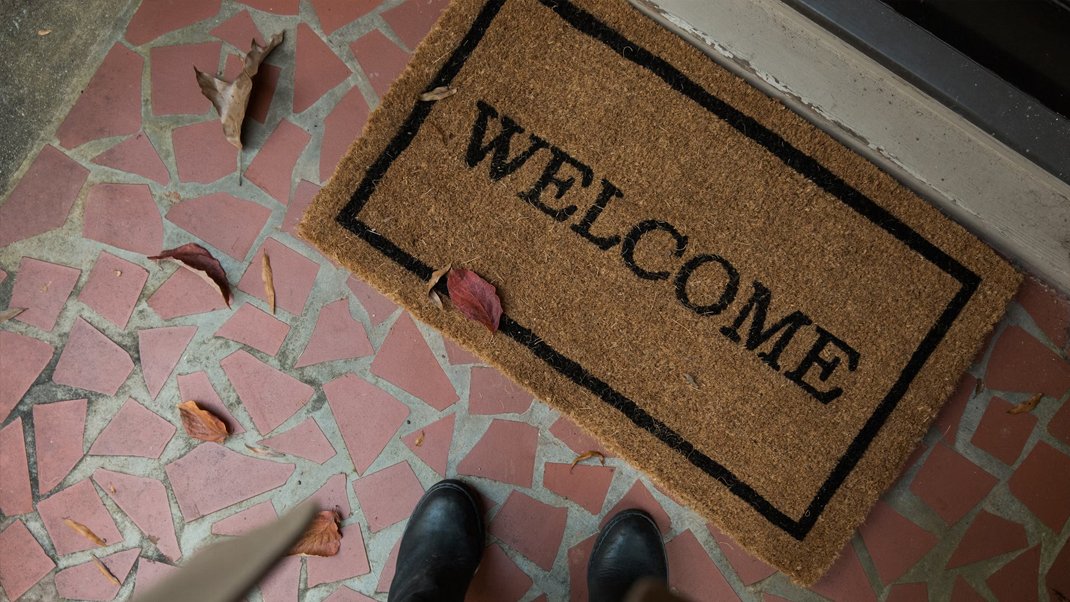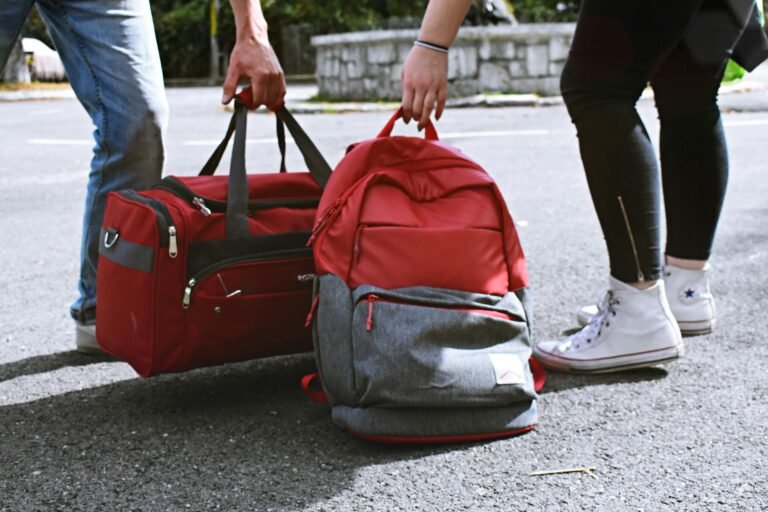What Makes a Great Foreign Service Social Sponsor (And How to Be One!)
Moving is tough. There’s no way around it. The logistics alone can feel overwhelming — packing up your entire life, saying goodbyes, navigating customs, and landing in a completely new place where you might not know a soul. But arriving at a new Foreign Service post without support? That can feel next-level challenging. This is where the Foreign Service social sponsor, often as an unsung hero, makes a world of difference in those critical initial days and weeks.
We’ve compiled a free downloadable Foreign Service Social Sponsor Checklist.
We promise to deliver you the checklist without secretly signing you up for anything you didn’t want.
No Spam. No sharing your information, just the tool.
Why Foreign Service Social Sponsors Matter: Making or Breaking the Arrival Experience
We all know the drill: that feeling of arriving at a new post — the jet lag, the unfamiliar surroundings, the immediate need to set up a household and get life running while simultaneously starting a new job or navigating life as an EFM. It’s a lot, even for the most seasoned among us.
This is precisely why social sponsors are essential in the Foreign Service move. They are the friendly face, the local guide, the initial point of contact who can help bridge the gap between arriving and feeling settled abroad. A great social sponsor can make the transition smoother, less stressful, and genuinely welcoming. They provide that crucial first layer of expat community support.
Conversely, a less engaged sponsor — or sometimes, no sponsor, which sadly happens — can leave arriving families feeling isolated and struggling to figure out even the most essential things. It can honestly make or break that initial expat arrival experience. Those immediate needs upon arrival — like knowing where to get groceries, how to set up internet, or even just having someone answer a quick question about local norms — are huge when everything else is unfamiliar. A good sponsor is there to help with those initial hurdles, making the difference between feeling lost and feeling like you’ve got someone in your corner.
The “Basics” vs. Going Above and Beyond
So, what does a social sponsor actually do? The role is typically a volunteer one, and the level of involvement can vary widely from post to post and from person to person. There are definitely some core, expected duties that fall under the “basics.” This might include ensuring the Welcome Kit is in the house and has the essentials like toilet paper and soap, providing some initial information about the post, and maybe coordinating with the housing team to ensure the home is ready. If you’re lucky, a sponsor might even bake you that legendary arrival casserole!
But then there are those sponsors who go above and beyond, the ones who become almost like guardian angels during your Foreign Service move. These people might personally pick you up from the airport, a true act of kindness after a long flight. They might do a basic run to the grocery store in advance, stocking your fridge with a few essentials like milk, bread, and something easy for breakfast on the first morning. They could list their favorite restaurants within walking distance or offer to take you to a local store like HomeGoods (or the equivalent!) in the first few days to grab those immediate nesting items. Some might even throw a small welcome party to introduce you to the community immediately.
At one post we were at, the social sponsor decorated the house for Christmas! The arriving family, with two kids, was arriving on December 23 and had sent their kids a few presents in advance. But the sponsors took it to the next level, buying a small tree, lights, and decorations. The kids’ faces lit up when they walked in and saw that Santa hadn’t forgotten them, despite the long move, and the parents were taken aback. A friendship was born that day.

These “above and beyond” gestures are incredibly generous and can greatly impact the arriving family’s experience.
However, it’s crucial to remember that these are extra acts of kindness. While deeply appreciated, they aren’t necessarily part of the official social sponsor duties, and it’s not fair or realistic to expect every sponsor to be able to offer this level of support.
Everyone’s capacity is different, and sponsors are, as we said, typically volunteers with their own lives, jobs, and families to manage.
Consider This Post:
Creating Comfort: Turning Temporary Housing into a Cozy Home
Becoming a Great Foreign Service Social Sponsor: Support Without Burnout
Being a social sponsor is gratifying, as it contributes to the expat community support network. You get to be that welcoming face you perhaps desperately needed during one of your own moves! But, let’s be honest, you also have your own life happening — your job, your family, your own settling-in process if you’re relatively new to the post yourself. So, how do you be the best, most supportive social sponsor without losing your mind, spending a ton of money, and resenting the people depending on you?
Setting Realistic Expectations (for Yourself)
First off, you have to set realistic expectations for yourself. You are a volunteer, not a full-time concierge service. You simply can’t do everything, and that’s okay. It’s perfectly fine to say no to a request if it’s outside your capacity or comfort zone, or to suggest alternatives. For instance, if you can’t do the airport pickup yourself, you can help them arrange transportation or connect them with someone else who can.
Communicate your availability clearly from the start. Let your incoming family know when you’re generally free and when you’re not. This prevents misunderstandings and manages expectations on both sides. And remember, you absolutely do not need to spend much of your money. The most valuable things you can offer are your time, knowledge, and willingness to help navigate the initial hurdles.
Key Actions for Effective Foreign Service Sponsorship
So, what can you do to be a truly effective and supportive sponsor?
- Reach out early and establish communication. When you get the assignment, send an email or message introducing yourself. Share a little about yourself and your family. This breaks the ice and gives them a friendly face to connect with before they even arrive.
- Gather key information about the family. Ask about the size of the family, kids’ ages, if they’re bringing pets, any dietary needs or allergies, and their key arrival dates and times. This information is invaluable for tailoring your support.
- Coordinate with the Office Sponsor and CLO. You’re not in this alone! Work with the employee’s office sponsor and the Community Liaison Office (CLO) at post. They can provide essential information and support, and coordinating ensures everyone is on the same page.
- Focus on essential pre-arrival tasks. Confirm that their housing is ready and that the Welcome Kit with crucial supplies is in place. This is a fundamental step that makes a significant difference on arrival day.
- Offer specific help rather than a vague “let me know if you need anything.” While well-intentioned, “let me know if you need anything” can be challenging for arriving families to act on when they don’t even know what they don’t know yet. Instead, offer specific assistance based on the information you gathered. For example, “Can I grab you a few groceries before you arrive? What would you like for breakfast on day one?” or “I can show you where the commissary is in the first couple of days.”
- Share practical, post-specific knowledge. Your local knowledge is gold! Share tips on the best grocery stores, how to use local transport, reliable apps for taxis or food delivery, and any quirks of the local culture or post procedures.
- Facilitate connections within the community. Introduce them to other families with kids the same age, people with similar interests, or helpful resources at post. Connecting them with the broader expat community helps them build their own support network faster.
- Check in regularly in the first few weeks. A quick text or call every few days to see how they’re doing and if any urgent questions have come up is usually sufficient. You don’t need to be overbearing, but a consistent check-in shows you care and are available if required.
Being a great sponsor is about being a helpful, knowledgeable, and empathetic point person during a stressful time. It’s about providing that initial bridge to feeling at home in a new place.
Download Your Foreign Service Social Sponsor Checklist
We’ve compiled a Foreign Service social sponsor checklist to help sponsors like you streamline this process and ensure you’re covering the key areas without feeling overwhelmed. It’s a non-post-specific guide with actionable steps from when you’re assigned a family through their first few weeks at post. It helps you organize tasks, remember key questions to ask, and ensures you’re providing valuable support efficiently. It’s free, and we promise not to sign you up for anything you didn’t want.
Being a Considerate Arrival: What’s Okay to Ask For?
Alright, let’s switch gears. You’re the one arriving. You’re exhausted, maybe a little overwhelmed, and everything is new. You’ve been assigned a Foreign Service social sponsor, and thank goodness! They’re there to help you navigate these tricky first steps. But how do you know what’s okay to ask for? When are you being a considerate arrival, and when might you accidentally be asking too much of their time and energy?
First, let’s acknowledge that it’s completely okay to need help when you’re arriving at a new post. This is a Foreign Service move, not a vacation! You’re dealing with a huge transition, and leaning on your sponsor for some initial guidance is precisely what the program is there for. Don’t feel like you’re being a burden by needing assistance with things that feel obvious to someone who’s been there for a while.
Understanding the Foreign Service Sponsor is a Volunteer
The most important thing to remember is that your social sponsor is, in almost all cases, a volunteer. They are not being paid extra for this role. They are giving their time and energy out of generosity and a desire to help new expat community members. Their help is a gift, not an entitlement. Keeping this in mind is key to being a considerate arrival.

Consider This Post:
Expat Essentials: Must-Have Items for Your Smooth Transition Abroad
Communicating Your Needs Clearly
So, what is okay to ask for? Be specific about what would be helpful. Instead of a general “I need help with groceries,” you could ask, “Could you point me to the nearest grocery store that has a good selection of produce?” or “Would you be able to show me how to use the local delivery app for groceries?” Specific questions are much easier for your sponsor to answer or act on than vague requests.
Crucially, communication is a two-way street, and responding to your sponsor is just as important as them reaching out to you. We’ve been social sponsors ourselves many times, and often this volunteer work falls to EFMs who might have more flexibility during business hours. One of the biggest frustrations for a sponsor is a lack of communication from the arriving person. As the sponsor, reaching out early is essential, but it’s just as crucial for the arriving person to answer those emails or messages! Often, we’ve seen or experienced no response until a week or so before the arrival date, and then the stress and demands suddenly hit. This creates unnecessary stress for everyone involved and doesn’t exactly set the stage for the positive relationship you likely want to kick off at a new post.
So, make it easy for your sponsor to help you. If they ask for information — like your family size, dietary needs, or updated itinerary — provide it promptly. They need this information to offer relevant assistance and make arrangements. Don’t make them chase you down for details to help you settle in. A timely response shows you are engaged and appreciate their efforts.
Knowing When You Might Be Asking Too Much
This is the trickier part, right? Knowing the line between needing help and being overly demanding. While your sponsor is there to support your expat arrival, their primary job or role at post comes first. They also have their own family commitments and personal lives. Avoid assuming they are available 24/7. Give them a little grace if they don’t respond to a non-urgent question immediately.
Try to consolidate your requests where possible. Instead of sending multiple messages throughout the day with individual questions, jot down a few things and ask them in one go when you know they have a moment.
Express immense gratitude for any help offered, no matter how small it may seem. A sincere “thank you” goes a long way and shows you appreciate their time and effort.
Finally, understand that while your sponsor is there to help you get started, some things are ultimately your responsibility to figure out. They can show you where the bank is, but they aren’t going to open your account for you. They can explain local transportation options, but they aren’t your chauffeur. Be proactive in navigating post-life yourself as soon as you feel able. The goal of the sponsorship program is often to empower the new arrival to become independent within the community, not to create a long-term dependency. Asking for help when needed is smart; expecting someone to do everything for you isn’t fair to a volunteer.
Building a Positive Foreign Service Sponsor – Arrival Relationship
The relationship between a social sponsor and an arriving family is unique. It’s often brief in its most intense phase, but it can set the tone for your entire tour at your post. Building a positive relationship is about mutual respect, clear communication (yes, we’re stressing this again!), and gratitude, on both sides.
The Power of Communication, Respect, and Gratitude
Clear communication is the bedrock of both the sponsor and the arriving family. Sponsors should communicate their availability and what they can realistically offer. Arriving families should communicate their needs clearly and respond to their sponsor promptly. This avoids misunderstandings and builds trust.
Mutual respect is also key. Sponsors should respect the stress and disorientation the arriving family is experiencing, and arriving families should respect that the sponsor is a volunteer with their own life.
And gratitude? It goes a long, long way. A heartfelt thank you, a small token of appreciation if appropriate (though never expected!), or even acknowledging the effort made can strengthen the bond.
From Sponsorship to Friendship?
Sometimes, that initial connection forged during arrival blossoms into a lasting friendship. You’ve shared a unique, intense experience — the chaos of arrival! — and that can create a strong bond. While it doesn’t happen every time, these initial sponsor-arrival relationships can be a fantastic way to build your social circle at a new post and find people who “get” what you’re going through.

The “Pay It Forward” Dynamic vs. Compensation
This is a nuanced point within the expat community. There’s a strong culture of “paying it forward” in the Foreign Service. Many people volunteer as social sponsors because someone helped them when they arrived at a previous post. It’s part of being on the same team, contributing to the community that has supported you. You’ve spent the time and effort to help someone get settled because someone did it for you, and you’ll likely do it again at your next post. It’s just part of the cycle.
Because of this deeply ingrained “Pay It Forward” concept, offering monetary compensation to a volunteer social sponsor is generally unexpected and might even be awkward or politely refused. Their motivation is typically community support and the satisfaction of helping someone navigate a challenging transition.
However, offering to cover specific expenses incurred on your behalf, like reimbursing them for groceries they bought for your arrival, or paying for gas if they drove you somewhere specific, is usually acceptable and appreciated. It shows you recognize that while their time is volunteered, their money shouldn’t have to be. But offering a fee for their time or services as a sponsor? That generally doesn’t align with the volunteer spirit of the program. Focus on sincere gratitude and perhaps a tiny, thoughtful thank-you gift (like dinner out, a box of chocolates, or a plant) once you’re settled, rather than monetary compensation for their sponsorship role.
Conclusion: The Lasting Impact of a Warm Welcome
Ultimately, the Foreign Service social sponsor plays a vital, often quiet, role in the success of a move overseas. They are the welcoming committee, the initial guide, and a crucial source of support during significant change. Whether you are stepping into the role of a sponsor or are the one arriving and receiving support, understanding the dynamics of this volunteer relationship is key to making it a positive experience for everyone involved.
For sponsors, it’s about offering what you can realistically manage, communicating clearly, and finding satisfaction in contributing to the well-being of your community. Utilizing tools like a Foreign Service social sponsor checklist can help you stay organized and effective.
For arriving families, it’s about communicating your needs specifically, being responsive, respecting the sponsor’s time as a volunteer, and expressing genuine gratitude for any assistance.
The impact is significant when both sides approach the relationship with mutual respect, clear communication, and a spirit of helpfulness. A warm welcome can ease the stress of arrival, help families feel settled abroad more quickly, and foster a stronger sense of belonging within the expat community. It reinforces that we’re all in this together, navigating the unique challenges and rewards of this globally mobile life, and that sometimes, the most straightforward act of welcome can make all the difference.







